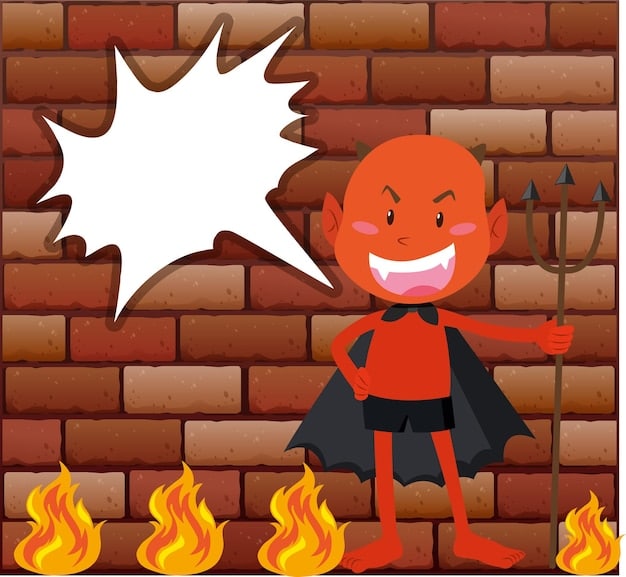Unveiling the Biggest Spoiler Alerts in Pop Culture

Spoiler alerts are warnings given to audiences to reveal plot elements that could diminish the experience of first-time viewers, and they’ve become an integral part of consuming media in today’s interconnected world.
In an era dominated by binge-watching and instant access to information, spoiler alerts have become an essential part of our consumption of entertainment. These warnings, designed to protect viewers from inadvertently learning key plot points, spark debate and shape the way we communicate about movies, TV shows, and video games.
The Evolution of Spoiler Culture
The concept of spoilers has existed for decades, but its prominence has increased exponentially with the rise of the internet and social media. What started as a simple courtesy has evolved into a complex cultural phenomenon.
Before the internet, spoilers were primarily spread through word-of-mouth or print media reviews. Today, social media platforms like Twitter, Reddit, and Facebook allow information to disseminate at lightning speed, making spoiler avoidance a Herculean task.
The Pre-Internet Era: Spoilers in Print and Conversation
In the days before the internet, spoilers spread slowly, primarily through casual conversations and print media. Reviews in newspapers and magazines could inadvertently reveal plot details, but the impact was limited by the distribution of these publications.
The Internet Age: The Rise of Instant Spoilers
The internet changed the game. Online forums, social media, and instant messaging apps enabled real-time sharing of information. A single tweet could spoil a crucial plot point for thousands of viewers, highlighting the need for spoiler warnings.

- Social Media’s Role: Platforms like Twitter and Facebook have become breeding grounds for spoilers, requiring vigilant users to navigate carefully.
- Fan Forums and Communities: Online forums dedicated to specific shows or movies often engage in detailed discussions that inevitably lead to spoilers being shared.
- News and Media Outlets: Even news sites and entertainment blogs can inadvertently include spoilers in headlines or articles, necessitating careful reading.
The evolution of spoiler culture has changed how we experience media. The desire to avoid spoilers has led to new viewing habits, such as binge-watching entire seasons in a single sitting, creating a shared language around avoiding spoilers, and the emergence of spoiler alert systems.
Why People Hate Spoilers
The hatred of spoilers is not just about avoiding plot details; it’s about preserving the emotional impact and surprise of experiencing a story firsthand. Spoilers can diminish the enjoyment and anticipation associated with watching a film or series.
Spoilers are often seen as a violation of trust in the storyteller and can impact the viewer’s experience and perception of the content.
The Psychological Impact of Spoilers
Research suggests that spoilers can alter our emotional response to a story. Knowing the outcome can change how we interpret events and characters, reducing the potential for surprise and suspense.
The Chemistry of Suspense
Suspense is a critical element in storytelling, creating a sense of anticipation and excitement that keeps viewers engaged. Spoilers disrupt this process, robbing the audience of the opportunity to experience the story as intended.
- Loss of Surprise: Spoilers remove the element of surprise, which is often a crucial part of enjoying a movie or TV show.
- Reduced Emotional Impact: Knowing what’s coming can lessen the emotional impact of a scene, as the viewer is no longer fully immersed in the moment.
- Altered Interpretation: Spoilers can change how viewers interpret events and character motivations, impacting their overall experience of the story.
The resentment toward spoilers is deeply rooted in the desire to fully experience the story as the creators intended, preserving the emotional and intellectual journey that good storytelling offers.
Are Spoilers Always Bad? The Debate
While most people abhor spoilers, there’s a growing debate about whether they’re always detrimental. Some argue that spoilers can enhance enjoyment by providing context and allowing viewers to focus on other elements like character development and cinematography.
Some theories even suggest that knowing the ending can alleviate anxiety, especially for viewers who struggle with suspense.

The Case for Spoilers: Enhanced Engagement
Some studies indicate that spoilers can actually increase enjoyment. Knowing the ending can allow viewers to focus on the narrative techniques and artistry of the production, rather than being preoccupied with guessing what will happen next.
Cognitive Benefits of Spoilers
For some viewers, spoilers can reduce anxiety and enhance comprehension. Knowing the outcome can make complex narratives easier to follow, allowing viewers to appreciate the nuances of the storytelling.
- Reduced Anxiety: Spoilers can alleviate the stress of anticipating uncertain outcomes, making the viewing experience more relaxing.
- Focus on Details: Knowing the plot allows viewers to pay closer attention to character development, dialogue, and visual elements.
- Improved Comprehension: Spoilers can help viewers understand complex narratives by providing a framework for interpreting events.
Although spoilers are often frowned upon, they can offer unexpected benefits, enabling different ways of engaging with and appreciating storytelling.
How to Avoid Spoilers in the Digital Age
Avoiding spoilers in today’s hyper-connected world requires a combination of caution, strategy, and technological tools. From muting keywords on social media to carefully choosing when and where you engage with online content, it takes effort to stay spoiler-free.
In the age of instant information, protecting yourself from spoilers requires vigilance and proactive steps.
Muting Keywords on Social Media
One of the most effective ways to avoid spoilers is to mute relevant keywords on social media platforms. This prevents posts containing specific terms from appearing in your feed, reducing the risk of accidental exposure.
Using Browser Extensions and Apps
Several browser extensions and apps are designed to block spoilers. These tools analyze website content to identify and hide potential spoilers, allowing for a safer online experience.
- Keyword Filters: Using browser extensions or apps to filter out keywords related to the media you want to avoid spoilers for.
- Social Media Settings: Adjusting privacy settings on social media accounts to limit exposure to spoiler-heavy content.
- Careful Online Navigation: Avoiding forums, comment sections, and articles that discuss the content you want to remain unspoiled for.
Protecting online content from spoilers involves a strategic approach to manage the digital landscape and protect the viewing experience.
The Ethics of Sharing Spoilers
The ethics of sharing spoilers is a complex issue, with varying opinions on what constitutes acceptable behavior. While some believe that sharing spoilers is inherently wrong, others argue that there’s a responsibility to be mindful of others’ viewing experiences.
Whether intentional or accidental, the disclosure of spoilers can have ethical implications, especially when it comes to respecting the enjoyment of media.
Intentional vs. Accidental Spoilers
There’s a significant difference between intentionally spoiling something for someone and accidentally revealing a plot point. Intentional spoilers are often seen as malicious, while accidental spoilers may be forgiven more easily.
The Time Window for Spoiler Protection
Determining how long to avoid sharing spoilers after a movie or TV show’s release is a subject of debate. Some cultures have specific timeframes, such as a week or a month. But ultimately it depends on the community and content being discussed.
- Respect for Others: Considering others’ potential viewing experiences before sharing plot details.
- Context and Intent: Differentiating between intentional acts of sabotage and accidental disclosures of information.
- Time Sensitivity: Recognizing that the importance of spoiler protection fades over time.
The ethics of distributing spoilers includes a combination of honesty, empathy, and regard for the communal enjoyment of stories.
Spoiler Alerts in Different Cultures
Spoiler etiquette varies across different cultures and communities. What may be considered acceptable behavior in one context could be a major faux pas in another. Awareness of these cultural differences is essential for navigating global conversations about media.
Spoiler alert etiquette differs from culture to culture, highlighting the significance of cultural norms in shaping behavior within spoiler-filled environments.
Cultural Variations in Viewing Habits
Different countries have distinct viewing habits that influence the way spoilers are perceived. In some regions, simultaneous releases of movies and TV shows are common, whereas others have staggered release schedules.
Influence of Social Norms and Etiquette
Each culture has its own norms and customs, which extend to spoiler etiquette. Some societies may place a higher value on avoiding spoilers, while others may be more relaxed about sharing plot details.
- Regional Release Schedules: Adjusting spoiler practices based on varying release schedules in different regions.
- Cultural Awareness: Recognizing the diversity of norms and behaviors across different groups and locations.
- Community Standards: Adhering to the rules and traditions of specific groups and subcultures.
Respecting cultural differences in spoiler etiquette ensures that conversations about media remain enjoyable and inclusive in global communities.
| Key Point | Brief Description |
|---|---|
| 🎬 Evolution | From print to the internet, the impact of sharing spoilers has grown significantly. |
| 💔 Dislike | People dislike spoilers because they diminish the original viewing experience. |
| 🛡️ Avoidance | Strategies can include muting keywords on social media to avoid spoilers. |
| 🌐 Cultural impact | Spoiler etiquette varies by culture due to differences in media consumption. |
Frequently Asked Questions
▼
A spoiler alert is a warning given to audiences before revealing key plot elements which might reduce the impact for new viewers.
▼
They diminish the emotional impact and surprise of experiencing a story firsthand, affecting emotional responses.
▼
Spoilers can enhance engagement by providing context, allowing viewers to focus on character development instead.
▼
Muting keywords, using browser extensions, and careful online navigation are strategic ways to protect content viewing.
▼
It involves intentional acts of sabotage, accidental disclosures, time sensitivity, and respect for others.
Conclusion
Spoiler alerts have transformed the way we navigate and appreciate storytelling in the digital age. While opinions on spoilers vary, understanding their impact and ethical implications is crucial for enjoying media responsibly and respectfully. Whether you’re a spoiler avoider or someone who doesn’t mind knowing the ending, respecting others’ viewing experiences is paramount in today’s spoiler-filled world.





